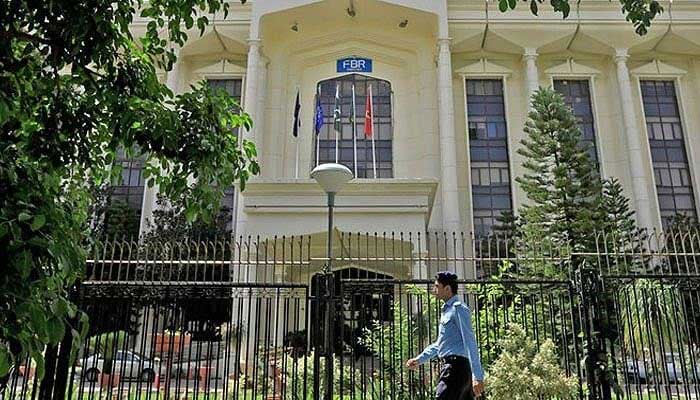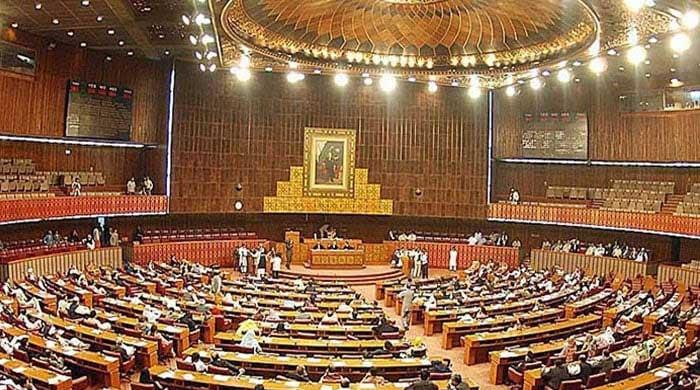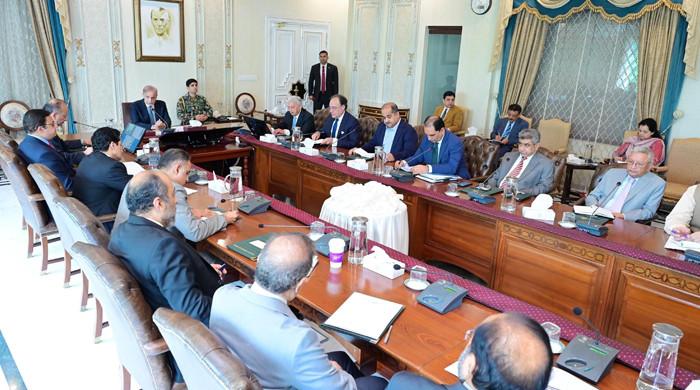FBR warns of action against 'under-filers' as deadline looms
Non-filers will be barred from making major transactions for property or vehicles purchases, says FBR chairman
October 11, 2024

- FBR to take principled decision to abolish category of non-filers.
- Oct 14 deadline for tax return not to be extended further: FBR
- "Under-filing major issue in tax system of Pakistan," says Langrial
ISLAMABAD: The potential under-filers will face the music as the tax machinery would go against them big time, barring them from making major transactions, said the Federal Board of Revenue (FBR) Chairman Rashid Mehmood Langrial.
"Those making significant transactions will not be able to buy property and vehicles and operate bank accounts," he said while speaking on Geo News' programme 'Aaj Shahzeb Khanzada Kay Sath' on Thursday night.
He said that the tax return date of October 14 would be the last due date for filing returns after which the government would take the principled decision to abolish the category of non-filers. The non-filers, he said, would be barred from major transactions.
Langrial explained that the common man would be able to buy plots and used vehicles, but anyone involved in significant transactions for property and new vehicles would not be able to make the purchases.
He said that there are 15 types of bans in some countries but the Pakistani government was considering slapping bans on a few things such as purchasing plots of more than Rs10 million, buying a new vehicle and freezing bank accounts.
The government might slap a ban on air travel, the FBR chief added.
Under-filing is a major issue in the tax system of Pakistan, he said, adding that the government was also enhancing the audit capacity of tax machinery.
Langrial said that there are three million individuals who are liable to pay taxes, and four million households that have air-conditioners installed.
"A narrative is built that there are only 2% of people who pay their taxes. The level of poverty is huge so there are less number of potential people who are liable to pay taxes," he added.
The official further stated that there is a chunk of people who are involved in under-filing as they don’t pay their due taxes fully.
He said the FBR analysed the data and found that there was a company which is paying 7% tax but there was another company in the same sector paying 21% tax. If the two companies in the same sector are paying taxes with such a wide margin, one is evading its due taxes, he added.
In the case of the cement sector, Langrial cited an example that coal is used for the production of cement but there is a company that shows that it used coal of Rs3,500 per ton but the second one claims that it costs Rs5,000 per ton, so both could not be right in their claims.
The company showing coal price of Rs5,000 per ton is involved in suppressing its sale. He said that the level of truth was minimal in our society, he added.
He went on to say that the FBR analysed the whole textile chain and found several discrepancies, showing massive tax evasion.
"In the beverages sector, there is a company showing sugar input less than 3% to 4% but there is another showing sugar usage of more than 16%.
"How could both prove that their claims are genuine," he asked.
The sharing of wrong data is a criminal act just like plunging into robbery, Langrial said, adding that there is no right of any tax amnesty. He said that field officers are drawing very minimal salary packages and he has requested the prime minister to ensure their mobility. The field formation officers draw a salary package of Rs111,000 per month, he added.
Moreover, he remarked that smuggling is also a major issue.
He said the FBR’s reform plan got approval in principle but it could not be done in a single day, or a few months. The procedural and legislative changes will take a few months period, he added.
In Pakistan, the FBR’s tax-to-GDP ratio could be jacked up to 15% along with petroleum levy while the provinces could increase their taxation contribution up to 3% of GDP, so overall the country could touch the 18% mark in total.











